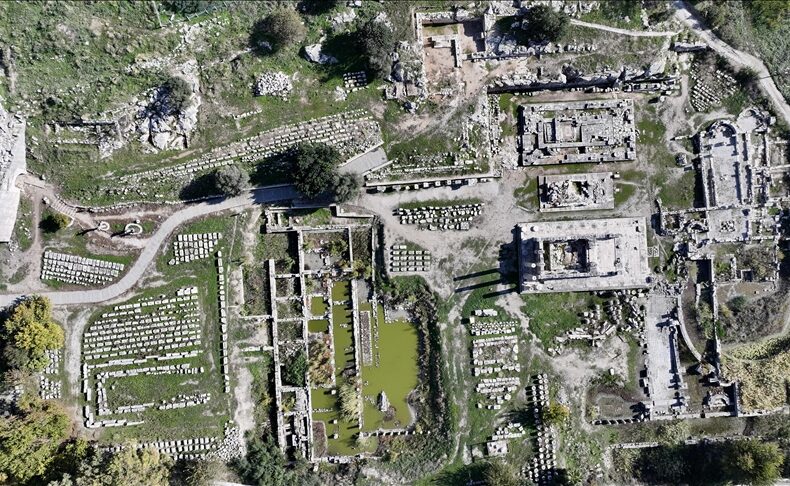
Letoon Sanctuary Embarks on a New Excavation Phase at One of Lycia’s Most Important Sacred Landscapes
The UNESCO World Heritage sanctuary of Letoon in Muğla’s Seydikemer district is entering a renewed phase of archaeological work, shedding light on one of ancient Lycia’s most influential religious centers. Located near Kumluova and paired with the neighboring city of Xanthos on UNESCO’s list since 1988, Letoon is renowned for its temples dedicated to Leto,

Ancient Hytos Harbor Emerges as Sea Recedes in the Gulf of Erdek
A rare coastal retreat has revealed the submerged structures of one of Kyzikos’ key ancient ports, offering a brief look into the maritime power of the Propontis. An unusual drop in sea level along the Düzler coastline in Erdek, western Türkiye, has exposed the long-hidden remains of the Hytos Ancient Harbor—a crucial maritime hub of

1,800-Year-Old Chamber Tomb Unearthed in the Ancient City of Tharsa, Adıyaman
Archaeologists have uncovered a remarkably well-preserved 1,800-year-old chamber tomb in the ancient city of Tharsa, located near Kuyulu Village in southeastern Türkiye. The discovery, dated to the Roman period, reveals new insights into burial traditions in the region and marks one of the most elaborate examples ever found in Tharsa. According to Mehmet Alkan, Director
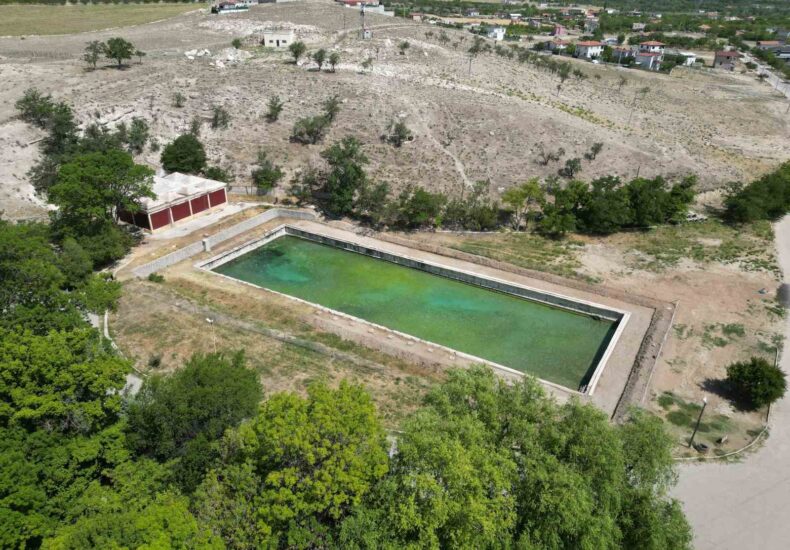
It was thought to be an ordinary water source: the Roman Pool of Bahçeli turns out to be a healing sanctuary
Eighty years after the last excavation, the Roman Pool in Bahçeli, a town near Bor in Niğde Province, has revealed an entirely new identity. Once believed to be a mere component of Tyana’s water supply system, the monumental pool has now been identified as part of a Roman healing sanctuary dedicated to the god Asklepios
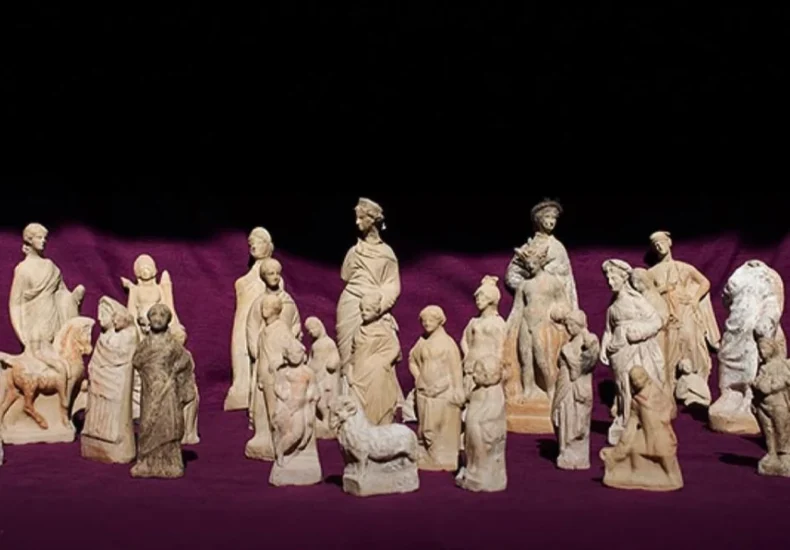
Terracotta Figurines of Myra Return Home After 2,100 Years
Unearthed in the ancient city’s Hellenistic layers, the colorful terracottas are now displayed where they were first crafted — inside Myra’s ancient theater. In the heart of Lycia, a collection of delicate terracotta figurines discovered in the ancient city of Myra has been unveiled to the public for the first time. The exhibition, titled “Terracotta
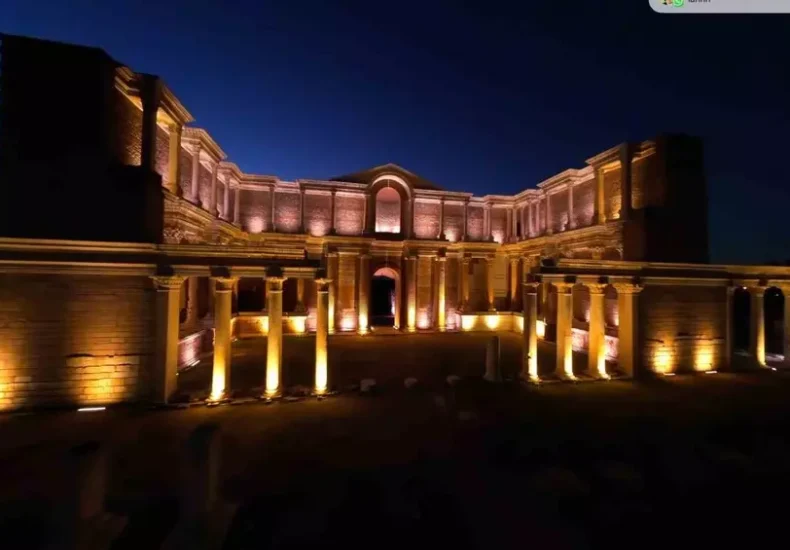
Night Museum Experience Begins in Sardis, the Ancient City Where Money Was First Minted
The ancient city of Sardis, once the glittering capital of the Lydian Kingdom and the birthplace of the world’s first coinage, is stepping into a new era. Following its inscription on the UNESCO World Heritage List in July 2025, the site has completed an extensive illumination project that now allows visitors to explore its ruins
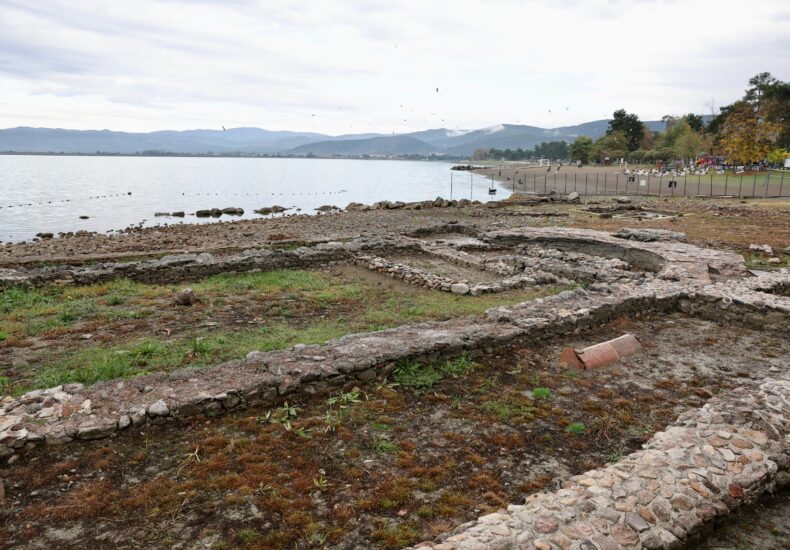
In the 1700th Anniversary of Christianity’s Recognition as an Official Religion, the Basilica Beneath Lake İznik (Nicaea) Opens to Visitors
On the 1700th anniversary of Christianity’s recognition as an official religion, an early Christian basilica submerged beneath Lake İznik (ancient Nicaea, northwestern Türkiye) has officially opened to visitors.Discovered in 2014 through aerial photography and later named one of the Top 10 Archaeological Discoveries of the Year by the Archaeological Institute of America, the site now
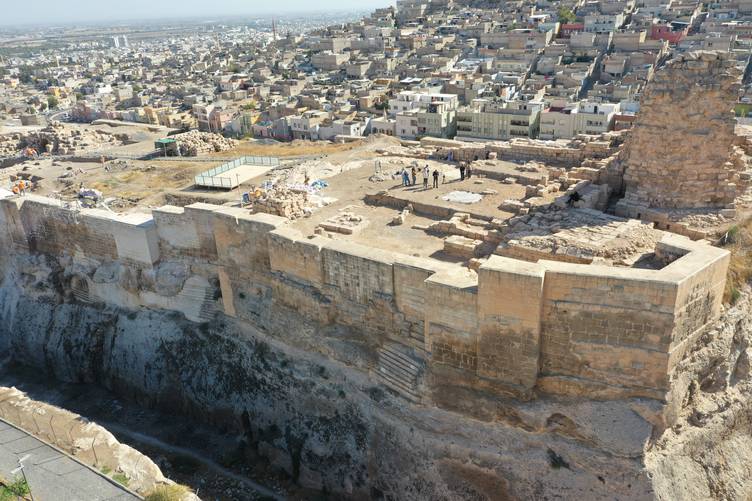
1,500-Year-Old Greek Mosaic Unearthed at Urfa Castle Reveals Names of Early Byzantine Clergy
Archaeologists working at the ancient Urfa Castle in southeastern Türkiye have uncovered a 5th-century Greek-inscribed floor mosaic decorated with intricate plant, animal, and geometric motifs. The discovery, believed to belong to a small church, chapel, or martyr shrine, provides new insights into the religious and social hierarchy of the early Byzantine city of Edessa —

Ancient Roman Power in Stone: Archaeologists Unearth Monumental Water Basin at Gabii Near Rome
Archaeologists from the University of Missouri have uncovered a monumental stone basin in the ancient city of Gabii, just 18 kilometers east of Rome — a find that may represent one of the earliest known examples of Roman monumental architecture. Built around 250 B.C., the vast basin carved partly into bedrock is believed to have

